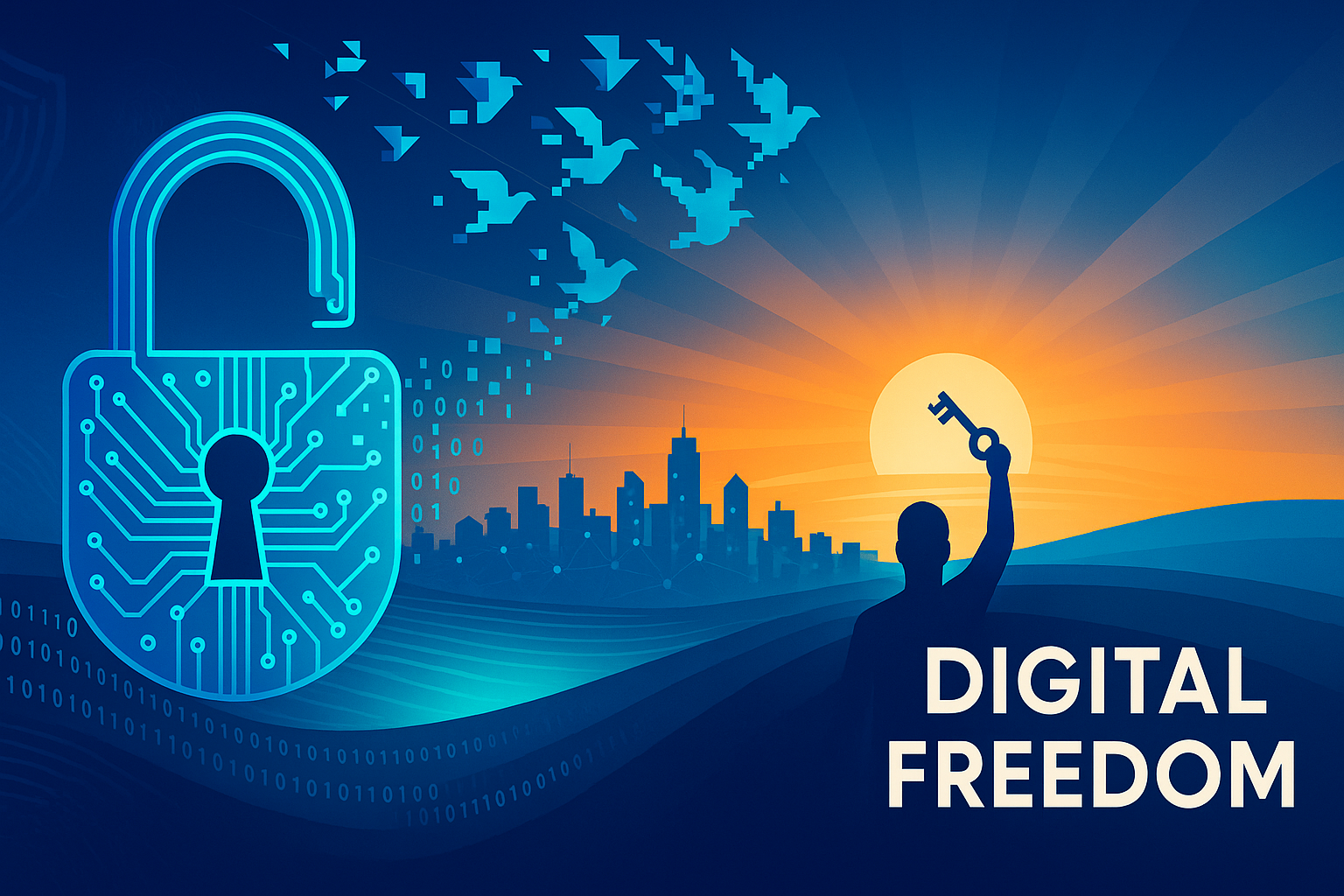Independence Day is a time to celebrate India’s hard-earned sovereignty. But in 2025, the meaning of freedom extends beyond physical borders — it now includes the ability to operate securely and autonomously in the digital realm.
In an era where cyberattacks can disrupt economies, manipulate public opinion, and compromise critical infrastructure, digital freedom has become an essential pillar of national independence.
The New Battleground
India’s economy, governance, and daily life are deeply intertwined with digital systems. Banking, energy grids, transportation, healthcare, and even democratic processes depend on secure, uninterrupted access to data and networks.
This dependence creates a new vulnerability: cyber threats that can bypass traditional borders. Nation-state actors, organized cybercrime groups, and corporate data exploiters have the capability to influence or destabilize entire nations without firing a shot.
Threats to Digital Freedom
- Cyberattacks on Critical Infrastructure — Power grids, telecom networks, and supply chains are prime targets.
- Data Exploitation — Unauthorized collection, misuse, or cross-border transfer of personal and sensitive data.
- Digital Dependence — Over-reliance on foreign technologies, platforms, and cloud infrastructure.
- Information Manipulation — Disinformation campaigns that erode trust in institutions.
FCRF Launches India’s Premier Certified Data Protection Officer Program Aligned with DPDP Act
Safeguarding India’s Digital Independence
Achieving digital sovereignty requires coordinated action on multiple fronts:
- Data Protection Laws — Enforcing frameworks like the Digital Personal Data Protection (DPDP) Act to ensure data is stored, processed, and shared with accountability.
- Cybersecurity by Design — Embedding security into national projects, from smart cities to e-governance platforms.
- Indigenous Technology Development — Reducing dependency on foreign systems by encouraging local innovation in hardware, software, and cloud infrastructure.
- Public Cyber Awareness — Empowering citizens to recognize and resist cyber threats.
- Global Cyber Diplomacy — Engaging in international cyber norms while protecting national interests.
Final Thoughts
As India celebrates its Independence Day, it must also recognize that true freedom in the 21st century is inseparable from security in cyberspace. Protecting our networks, securing our data, and ensuring technological self-reliance are no longer optional — they are the modern equivalent of safeguarding our borders.
Digital freedom is the independence we must defend every day.



